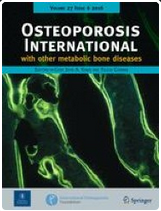 Duchenne muscular dystrophy (DMD) is the most common neuromuscular disease in boys. Inherited by an X-linked recessive mode, it is caused by a lack of dystrophin which causes progressive muscle deficit, cardio-respiratory complications and premature death. Chronic administration of oral corticosteroids remains the treatment standard for slowing the progression of the disease and delaying loss of walking. Introduced on average around the age of 4 to 5 years, corticosteroid therapy is frequently accompanied by side effects including osteoporosis, which is getting worse by immobility and orthopedic deformities. The bone fragility induced by osteoporosis is the cause of long bone fractures, vertebral compression and pain.
Duchenne muscular dystrophy (DMD) is the most common neuromuscular disease in boys. Inherited by an X-linked recessive mode, it is caused by a lack of dystrophin which causes progressive muscle deficit, cardio-respiratory complications and premature death. Chronic administration of oral corticosteroids remains the treatment standard for slowing the progression of the disease and delaying loss of walking. Introduced on average around the age of 4 to 5 years, corticosteroid therapy is frequently accompanied by side effects including osteoporosis, which is getting worse by immobility and orthopedic deformities. The bone fragility induced by osteoporosis is the cause of long bone fractures, vertebral compression and pain.
In an article published in July 2020, American clinicians report the results of an open-label clinical trial in six patients with DMD using teriparatide, a molecule known for its anti-osteoporotic properties due to its analogies with parathyroid hormone ( PTH). The median age of the patients was 18 years and their treatment lasted an average of 8 years. All of them had severe osteoporosis and continued to receive daily corticosteroids. Teriparatide was well tolerated and has shown relative stability in osteoporosis parameters. The treatment is however restrictive because it is given daily by subcutaneous injection.
